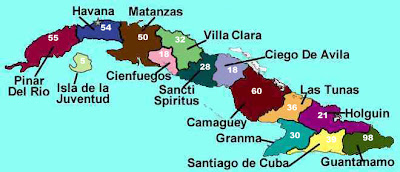Following in the footsteps of (among many other flower-children) Stephen Stills, Bonnie Raitt, Chrissie Hynde, Jimmy Buffet, and Carole King (who in 2002 serenaded Fidel Castro with a personal “You’ve Got a Friend”) guitar legend Jimmy Page made the pilgrimage to Fidel Castro’s fiefdom this week.
To Led Zeppelin’s former guitarist the visit probably seemed, not only fitting, but long overdue. Cuba was, after all, the first nation ruled by bearded long-hairs. Jean Paul Sartre, after all, hailed Cuba’s Stalinist rulers as “les Enfants au Pouvoir” (the children in power). Fidel Castro, after all, spoke at Harvard in 1959 on the same bill as pioneer beatnik Allen Ginsberg.
Remove the wispy beard and beret from the (late, thanks to Fidel Castro) revolutionary icon on those posters and t-shirts and you’ve got Jim Morrison of The Doors. Remove the cowboy hat from the (late, thanks to Fidel Castro) Revolutionary icon Camilo Cienfuegos and you’ve got Grateful Dead’s Gerry Garcia. Circa 1959, Raul Castro with his blond shoulder-length locks was a ringer for Joe Walsh circa Hotel California. These Cuban Stalinists were on the cutting edge of fashion. They pre-empted the Haight Ashbury look by a decade.
Castro’s captive (literally!) media, reports that Jimmy Page’s visit: “included tours of historic sites, and purchases of souvenirs such as the famous photograph of Che Guevara.”
In an interview with the BBC last year, Oscar and Cannes-winner Benicio del Toro explained the painstaking intellectual exertion that inspired his Che-mania: “I hear of this guy, and he’s got a cool name, Che Guevara! Groovy name, groovy man, groovy politics! So I came across a picture of Che, smiling, in fatigues, I thought, ‘Dammit, this guy is cool-looking!’”
In all likelihood, similar intellectual toil inspired Jimmy Page’s recent souvenir shopping spree in Havana.
For his role as Che Guevara in Steven Soderbergh’s movie Che, Benicio del Toro was recently honored by the peace-loving crowd in Hollywood and Cannes. For headlining their Concert for Peace. Jimmy Page was recently honored with the “Global Peace Award from the United Nations’ Pathway to Peace organization.
“We reject any peaceful approach! “declared the souvenir icon of the Concert for Peace’s honoree “Violence is inevitable! To establish Socialism rivers of blood must flow! If the nuclear missiles had remained (in Cuba) we would have fired them against the heart of the U.S. including New York City. The victory of socialism is well worth millions of atomic victims!”
“Hatred is the central element of our struggle!” raved this icon of flower-children. “Hatred that is intransigent….Hatred so violent that it propels a human being beyond his natural limitations, making him violent and cold- blooded killing machine… My nostrils dilate while savoring the acrid odor of gunpowder and blood. Crazy with fury I will stain my rifle red while slaughtering any surrendered enemy that falls in my hands! We must keep our hatred alive and fan it to paroxysm!”
In fact, Jimmy Page should know that many Cuban youths “tuned-in and turned-on” to (smuggled) Led Zeppelin music in the 60’s and 70’s. But rather than meet with his Cuban fans, Jimmy was hosted by apparatchiks of the Stalinist regime that jailed and brutalized them en masse.
In a famous speech in 1961 Che Guevara denounced the very “spirit of rebellion” as “reprehensible.” “Youth must refrain from ungrateful questioning of governmental mandates” commanded the KGB –mentored Guevara. “Instead they must dedicate themselves to study, work and military service.”
Cuban “roquero” of the time Charlie Bravo recalls the process: “When Castro’s goons caught me with a Led Zeppelin record, they led me to a Stairway alright—but at bayonet-point and this stairway hardly led to Heaven, instead it led down into a dark jail cell.”
On the orders of Jimmy Page’s smiling hosts, Charlie was joined by tens of thousands of Cuban youths. A few years earlier the hundreds of Soviet KGB and East German STASI “consultants” who flooded Cuba in the early 60’s, found an extremely eager acolyte in Che Guevara. By the mid 60’s the crime of a “rocker” lifestyle—long hair, blue jeans, etc.–or effeminate behavior got thousands of youths yanked off Cuba’s streets and parks by secret police and dumped in prison camps with “Work Will Make Men Out of You” in bold letters above the gate and with machine gunners posted on the watchtowers. The initials for these camps were UMAP, not GULAG, but the conditions were quite similar.
Today the world’s largest image of Jimmy Page’s souvenir icon adorns Cuba’s headquarters for Cuba’s KGB-trained secret police, a gang of Communist sadists who jailed and tortured at a rate higher than Stalin’s own KGB and GRU—and many of their victims were guilty of nothing worse than listening to music by Jimmy Page.
by Humberto Fontova
From: Big Hollywood
To read:
Exposing the Real Che Guevara: And the Useful Idiots Who Idolize Him















